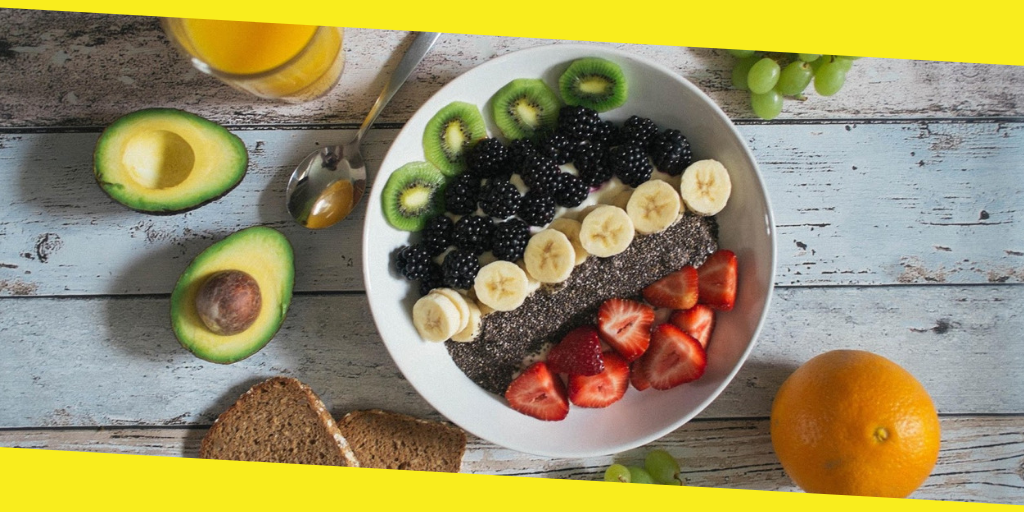Pros & Cons of A Vegan Lifestyle
This post was last updated on December 12th, 2024
Veganism has become remarkably popular around the world. The plant-based diet is being widely accepted primarily for its ecological, ethical and health benefits. Although there is considerable research to support the diet’s health and environmental benefits, it is necessary to decide whether this diet is ideal for you since one size can never fit all. Let’s take a closer look at the pros and cons of adopting a vegan lifestyle.

Image Credit: Unsplash
Pros:
May Help You Lose Weight
One of the prominent reasons behind an increase in the number of people adopting this plant-based diet is that vegans tend to be slimmer than non-vegans and also have a lower body mass index. Since vegans have a higher dietary fiber intake, they feel fuller longer. As a result, vegans have a natural tendency to consume lesser calories and often lose excess weight.
More Eco-sustainable
The vegan lifestyle is often fueled by the desire to not contribute to the negative impact that meat production has on the environment. This is crucial because our environment can only keep up with the prevalent levels of food production for so long. The present levels are alarming, unrealistic considering that the population around the world is increasing rapidly. Thanks why brands are branching out into all sorts of industries like sustainable clothing. Therefore, adopting veganism permits us to lessen the strain on the environment and also conserve our natural resources by enable more judicious usage.
Increases Intake of Antioxidants
The vegan diet comes with a long list of foods including meats and animal products that it restricts. For this reason, people on the diet often resort to eating whole grains, berries, vegetables, bean and seeds. In addition to other nutrient, such plant-based meals are rich in antioxidants and this increases the likelihood of vegans to consume more natural dietary fiber, antioxidants, vitamins and mineral.
Instills self-control
A vegan lifestyle is no joke. It takes extreme commitment, dedication and self-control. The diet involves being intentional about anything you put in your body and for fantastic reasons and causes. Being mindful about the production process of the food you eat and the ethical and ecological impact it has encourages you to make more sustainable and ethical choices. Considering that only a selective range of cafes and restaurants cater to the vegan diet, it takes a ton of commitment and sacrifice. It requires several positive behavioral traits, making you more headstrong than ever before and can also remove impulsive eating habits.
Lower Risk of Serious Illnesses
Numerous health benefits have been associated with this plant-based diet. Research findings suggest that the vegan diet can improve kidney function, lower blood sugar levels and lower cholesterol and blood pressure. It can also provide relief for people struggling with arthritis by reducing inflammation, pain and stiffness. Choosing the vegan way of eating may also lower the mortality rate from specific conditions such as heart disease, hypertension, stroke and even certain cancers.
Although this plant- based diet has repeatedly been linked to several positive effects on our health and environment, there are a few inherent disadvantages, too. It is crucial for you to consider these to ensure that this is the diet for you.

Image Credit: Unsplash
Cons:
Risk of Lacking Certain Nutrients
Meats are a great source of iron, protein. In order to prevent iron deficiency that can cause fatigue and brain function issues, people opting for the vegan diet must ensure that they eat iron-rich foods. Vegans without nutrient deficiency must ensure that they keep their levels of iron, protein, calcium and vitamin D. Most people meet their nutritional requirement from milk, eggs and meats, but these foods are not permitted on the vegan diet. This can be done by eating a fair share of nuts, beans and dark, leafy greens and soy or almond milk.
Eating the Wrong Foods
Eating vegan doesn’t equal eating healthy. Many high-sugars and high-fat foods are vegan but not great for your health. With this in mind, nutritionists recommend a gradual shift to a vegan diet so that it gives you enough time to adjust and educate yourself on how to follow the vegan diet in the most rewarding manner.
Challenging to Eat-out
As mentioned earlier, only a few, selective eateries provide vegan meal choices. This makes it particularly challenging to eat when you are away from home and especially at social events and gatherings. For this reason, it becomes hard to stick to the vegan lifestyle. Often, the only solution to this problem involves you carrying your own food with you to parties and any time you need to travel.
Interference with Existing Medical Conditions
In the case that you have any medical condition such as diabetes or osteoporosis, it is crucial for you to consult your physician and also a certified dietitian before you get on a vegan diet. This will ensure that the diet does not interfere with any medical condition that you may have.
The vegan diet has been extremely effective for numerous people, especially with regard to weight loss. The bottom line is that you need to make the right choice based on your own body and beliefs. While a particular diet may do wonders for one person, it may have undesired effects on another. Consider all the variables involved, including personal beliefs, dietary preferences, age, allergies, existing health condition and fitness levels. Before you sign up for any given diet, consult medical and professional help so that you can get the best out of it.
You may like this
Recommended For You
Interesting Facts About Cholesterol You Didn’t Know
Most Inside
Most Inside offers high-quality recommendations and valuable updates to enhance all aspects of your life, providing premium guidance and enriching experiences.




